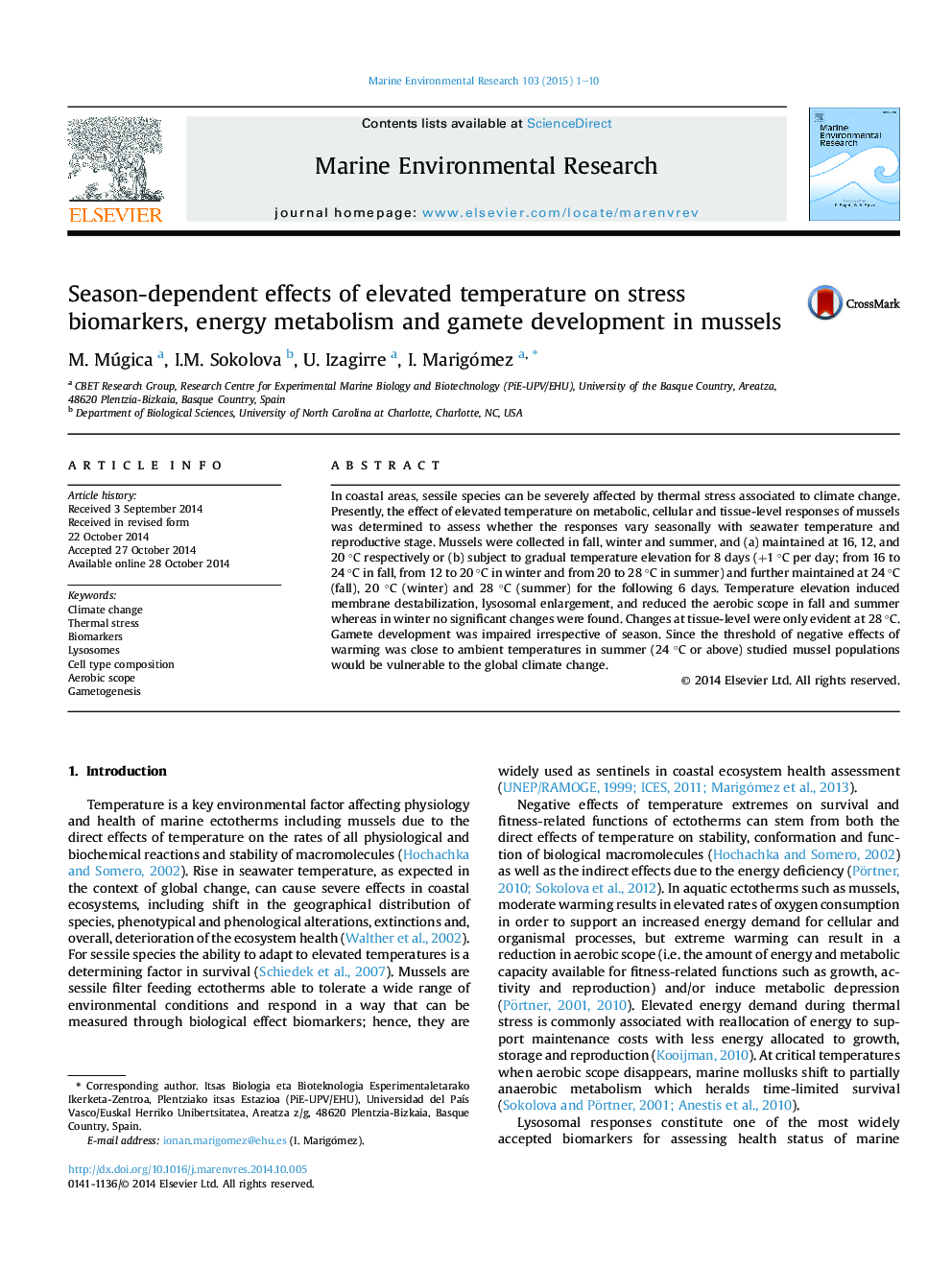| Article ID | Journal | Published Year | Pages | File Type |
|---|---|---|---|---|
| 4550719 | Marine Environmental Research | 2015 | 10 Pages |
•Season dependent effect of elevated temperature was investigated.•Cell and tissue responses to elevated temperature were different at each season.•Metabolic adjustment to elevated temperature was different at each season.•Gamete development was impaired by elevated temperature irrespective of season.•Breakpoint threshold temperature was found between 24 and 28 °C.
In coastal areas, sessile species can be severely affected by thermal stress associated to climate change. Presently, the effect of elevated temperature on metabolic, cellular and tissue-level responses of mussels was determined to assess whether the responses vary seasonally with seawater temperature and reproductive stage. Mussels were collected in fall, winter and summer, and (a) maintained at 16, 12, and 20 °C respectively or (b) subject to gradual temperature elevation for 8 days (+1 °C per day; from 16 to 24 °C in fall, from 12 to 20 °C in winter and from 20 to 28 °C in summer) and further maintained at 24 °C (fall), 20 °C (winter) and 28 °C (summer) for the following 6 days. Temperature elevation induced membrane destabilization, lysosomal enlargement, and reduced the aerobic scope in fall and summer whereas in winter no significant changes were found. Changes at tissue-level were only evident at 28 °C. Gamete development was impaired irrespective of season. Since the threshold of negative effects of warming was close to ambient temperatures in summer (24 °C or above) studied mussel populations would be vulnerable to the global climate change.
Graphical abstractFigure optionsDownload full-size imageDownload as PowerPoint slide
